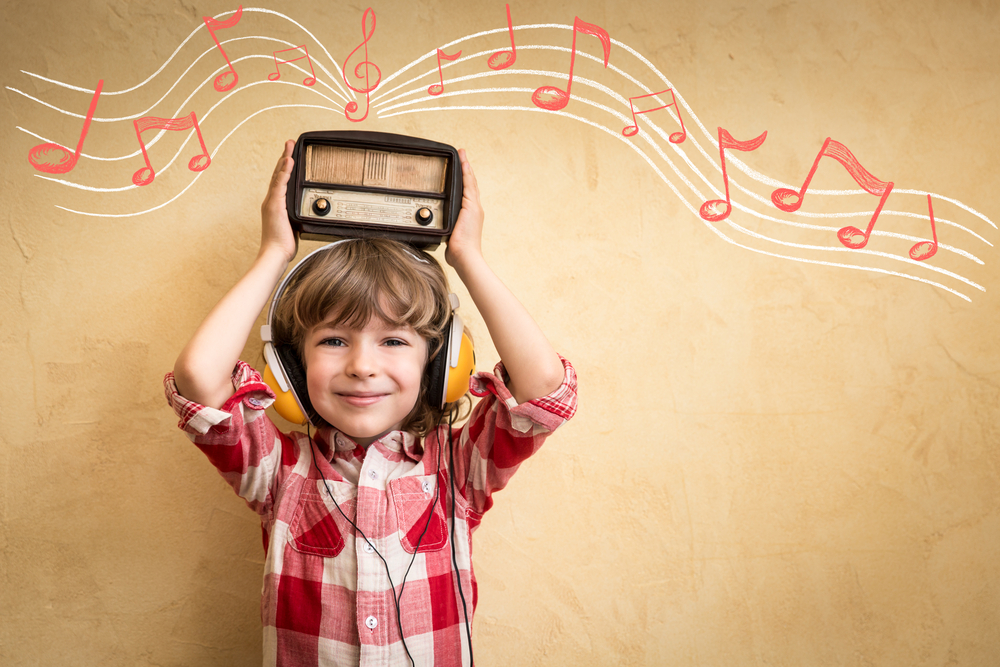Normal Poems worksheets activities for Ages 3-6
5 filtered results
-
From - To
Explore our "Normal Poems Worksheets Activities" designed for ages 3-6, where young learners can engage with the joy of poetry! These worksheets combine fun and creativity, helping children develop their language skills while exploring rhythmic language through captivating poems. Each activity encourages imagination and self-expression, making poetry accessible and enjoyable. From coloring activities to fill-in-the-blanks, children will enhance their vocabulary and comprehension in a playful manner. Perfect for home or classroom use, our resources foster a love for literature and help ignite a lifelong passion for reading. Dive into the world of poetry with us today!
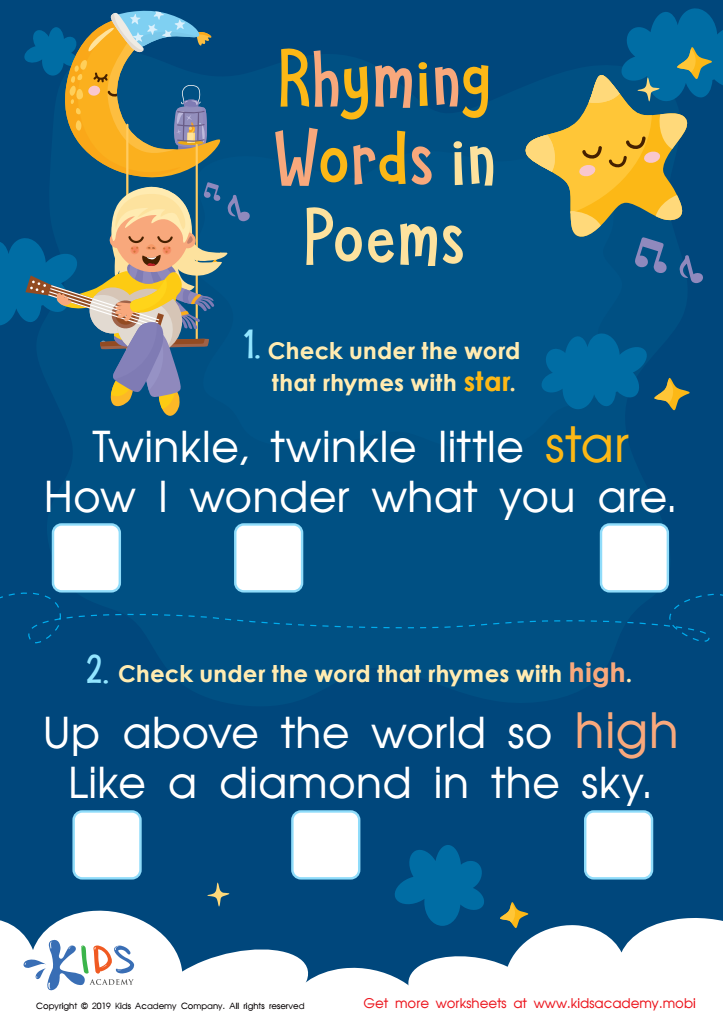

Rhyming Words in Poems Worksheet
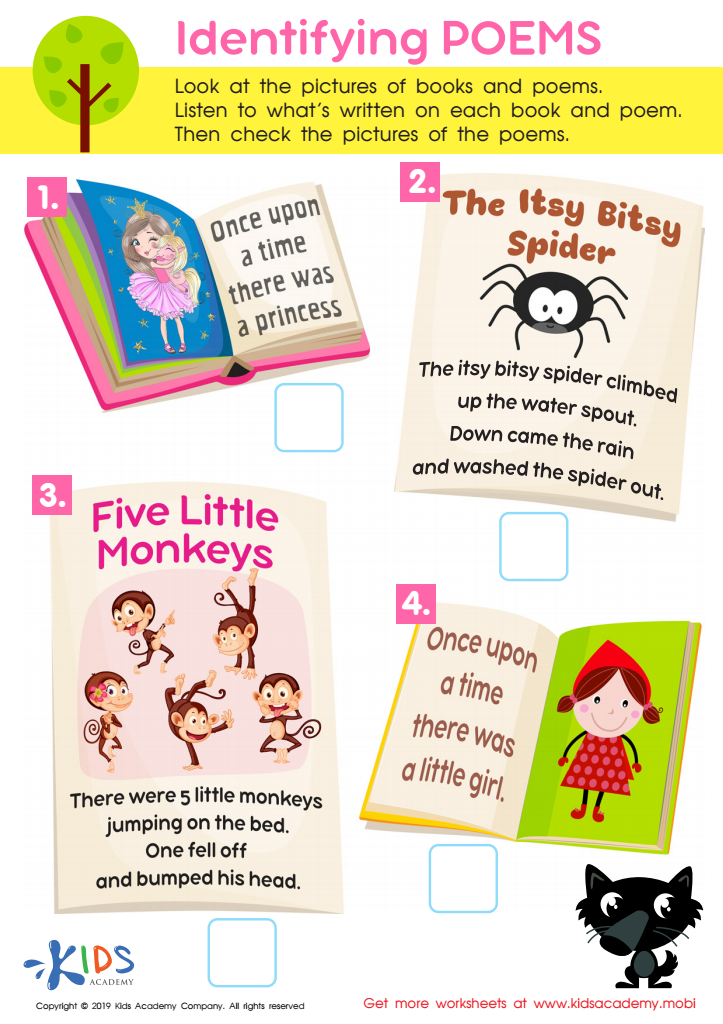

Identifying Poems Worksheet
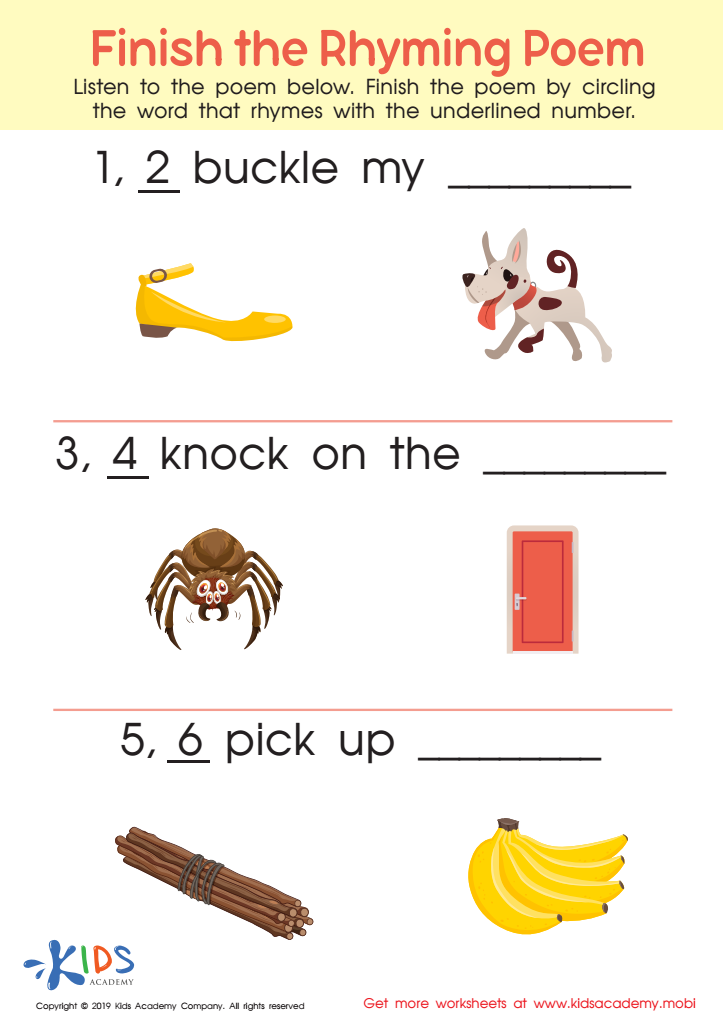

Finish Rhyming Poem Worksheet
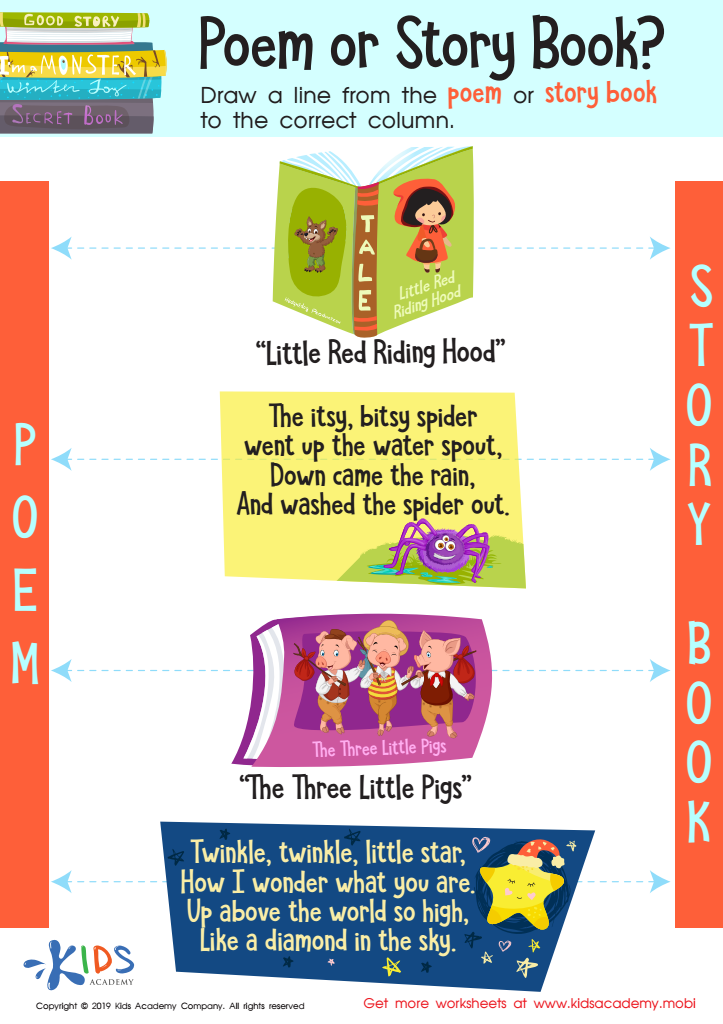

Poem or Story Book? Worksheet
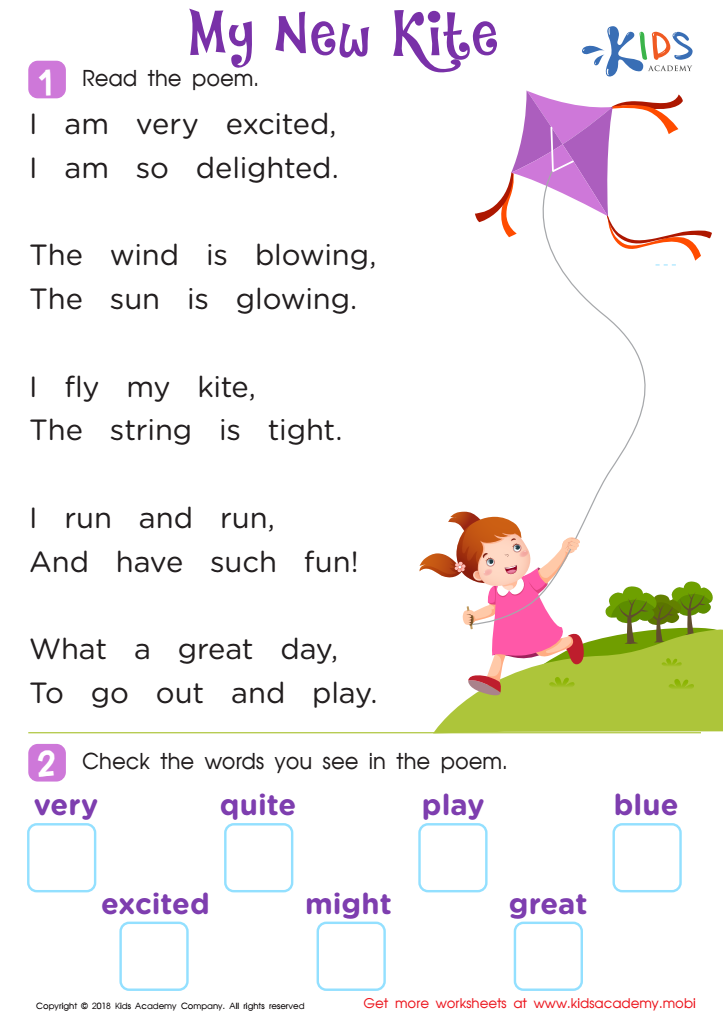

Poem: My New Kite Worksheet
Normal Poems activities for children aged 3-6 offer a wealth of benefits that should capture the attention of both parents and teachers. At this early age, children are developing critical foundational skills, and poetry can play a significant role in enhancing language development, creativity, and social-emotional growth.
Engaging in poetry activities helps young children expand their vocabulary, refine their listening skills, and develop a love for language through rhythm and rhyme. By introducing them to various forms of poems, educators foster creativity and imaginative thinking, allowing children to express their feelings and thoughts in unique ways. Furthermore, poetry activities can promote bonding between parents and children as they share and create new content together.
Additionally, incorporating poetry can support social-emotional learning by addressing themes like friendship, emotions, and community, helping children understand their feelings and those of others. The interactive nature of poetry, such as recitation and movement, also nurtures teamwork and confidence. All in all, poetry activities lay a delightful and effective groundwork for literacy while empowering young children to explore their worlds with curiosity and joy. Hence, parents and educators should prioritize these activities for enriching early childhood experiences.

 Assign to My Students
Assign to My Students



